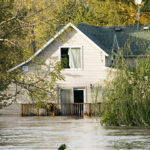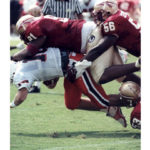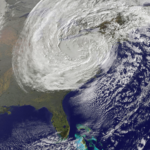In ACE American Ins. Co. v. Exide Technologies, Inc. and The Wattles Co., No. 1:16-CV-1600-MHC (N.D. Ga. Sept. 20, 2017), the Federal District Court for the Northern District of Georgia applied a continuous trigger theory to an all risk property policy and declined to allocate damage, resulting in a single first-party property carrier being responsible for several years of damage. This case demonstrates that courts in some jurisdictions may require that policy language ... Keep Reading »
Property
Navigating Florida Property Coverage Waters After Hurricane Irma
As the waters recede from Hurricane Irma, there are many issues for property insurers to consider as they adjust claims in Florida, including unique issues raised by assignment of benefits, Florida law on concurrent causation, and time element considerations. Assignment of Benefits An assignment of benefits (AOB) is a legal tool that allows a third party to be paid for services performed for an insured property owner who would normally be paid or reimbursed by the ... Keep Reading »
Texas Appeals Court affirms Class Certification in Case Alleging Roofer Violated Insurance Code
Texas homeowners Joe and Stacci Key sued their roofer, Lon Smith Roofing Contractors (“LSRC”), alleging LSRC violated the Texas Insurance Code by acting as an unlicensed public insurance adjustor. The trial court granted class certification, and LSRC sought interlocutory review. The Texas Court of Appeals affirmed in a case captioned Lon Smith & Assocs., Inc. v. Key, No. 02-15-00328-CV (Tex. Ct. App. Aug. 3, 2017). When it Hails… The Keys retained LSRC to make ... Keep Reading »
The Privilege Maintains Its Power: Texas Supreme Court Blocks Discovery of Insurer Attorney’s Billing Information
When (if ever) are an insurer’s attorney’s fees and billing information discoverable in a coverage dispute? Though the question is straightforward, the answer can vary from case to case and jurisdiction to jurisdiction. The Texas Supreme Court recently weighed in on the issue and found that an insurer’s attorney-billing information is not discoverable merely because the insurer challenges the insured’s request for attorney’s fees in coverage litigation. See In re Nat'l ... Keep Reading »
WV Court Rules Earth Movement Exclusion Unambiguously Precludes Coverage Regardless of Whether Landslide Was a Man-Made or Naturally-Occurring Event
In Erie Insurance Property and Casualty Company v. Chaber, No. 16-0490 (W. Va. June 1, 2017), the Supreme Court of Appeals of West Virginia reversed a lower court’s decision, holding that damage caused by a landslide was excluded, regardless of whether the landslide resulted from excavations or naturally occurred, where the policy excluded loss whether such loss is “caused by an act of nature or is otherwise caused.” The court went on to follow the law of other ... Keep Reading »
Texas Supreme Court Clarifies When Insured May Recover Policy Benefits
In an effort to clarify over 20 years of conflicting precedent, the Texas Supreme Court announced five rules that, according to the court, explain the relationship between claims for breach of insurance policy and extra-contractual claims for bad faith and violations of the Texas Insurance Code. USAA Texas Lloyds Co. v. Menchaca, No. 14-0721, slip op. at 6 (Tex. April 7, 2017). Although an insurance policy is an agreement between the parties that is generally governed by ... Keep Reading »
New York Court Upholds Suit Limitation Period, Ruling Appraisal is Not a Condition Precedent to Filing Suit
Courts will generally uphold reasonable suit limitation periods in property insurance policies, if the insurer does not affirmatively waive or extend them. In MZM Real Estate Corp. v. Tower Ins. Co. of New York, No. 452741/2015 (N.Y. Sup. Ct. April 11, 2017), a New York court followed the general rule. In enforcing a suit limitation period, the court was unpersuaded by the insured’s argument that once appraisal is demanded it becomes a condition precedent to filing ... Keep Reading »
Florida Supreme Court Decides that Concurrent Causes Equal Coverage
It’s said that “defeat is an orphan,” but insurable losses often have multiple, concurrent causes. In some cases, one or more of those causes might be outside the scope of coverage, either by omission or exclusion. In Sebo v. American Home Assurance Company, No. SC14-897 (Fla. Dec. 1, 2016), the Supreme Court of Florida ruled that if damage results from “concurrent causes” and, as between the concurrent causes, an “efficient proximate cause” cannot be determined, it is ... Keep Reading »
Postdiluvian Perils: Second Circuit Weighs Coverage For Losses Suffered After The Waters Recede
“[N]ow I only hear/ Its melancholy, long, withdrawing roar,/ Retreating, to the breath/ Of the night-wind, down the vast edges drear/ And naked shingles of the world.” — Matthew Arnold As this blog has reported, exclusions and limits for flood coverage have generally held up against the tide of claims arising from Superstorm Sandy. Now that the water is gone, however, new losses have been discovered, and new challenges arise. Last month, in National Railroad ... Keep Reading »
A Plague A’ Both Your Clauses: Insurance Probably Won’t Cover Businesses Stung By Zika
During the past several months, Zika virus has rapidly spread across Latin America and into the United States. While Congressional action has stalled, the Centers for Disease Control and Prevention (CDC) has issued a number of travel warnings, including one stating that “[p]regnant women should not travel” to the popular Wynwood neighborhood of Miami. This warning will almost certainly harm the many restaurants, art galleries and retail shops that cater to Wynwood’s ... Keep Reading »
- « Previous Page
- 1
- …
- 5
- 6
- 7
- 8
- 9
- 10
- Next Page »









